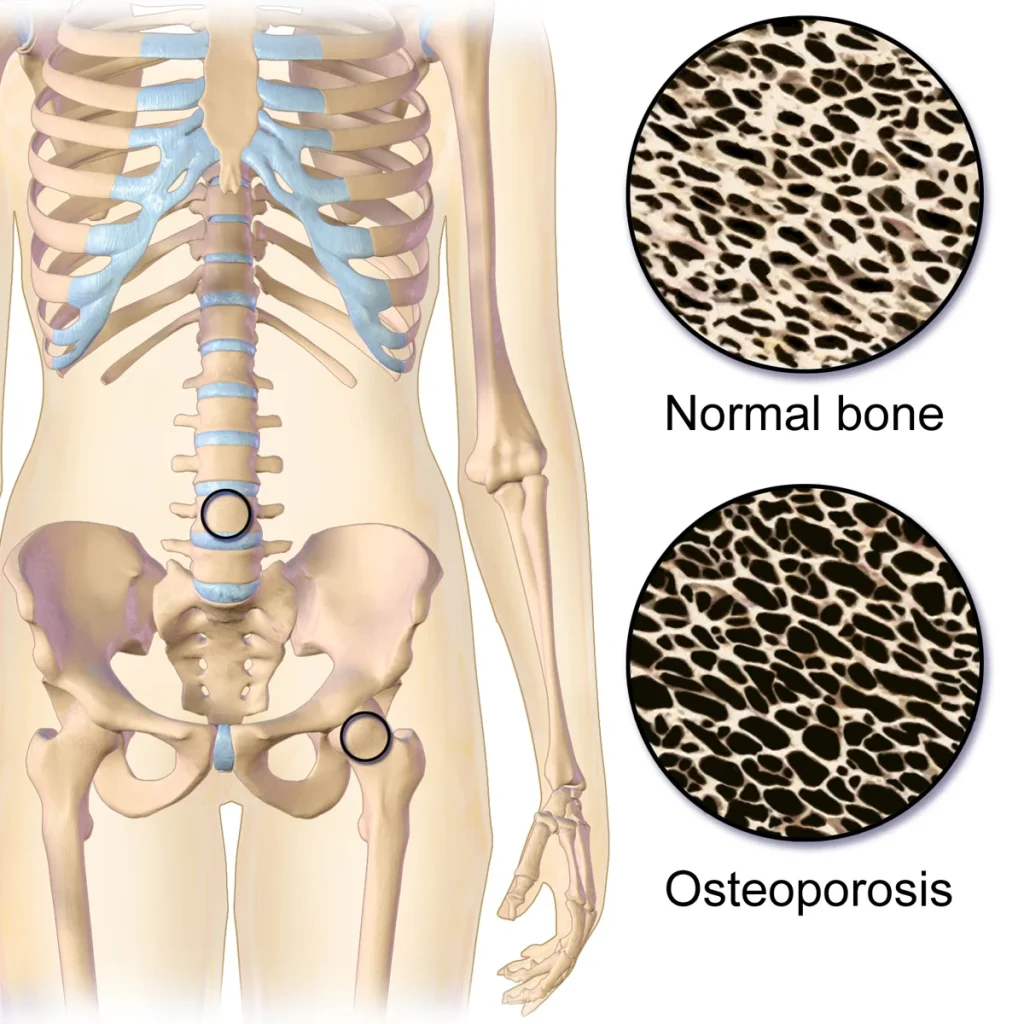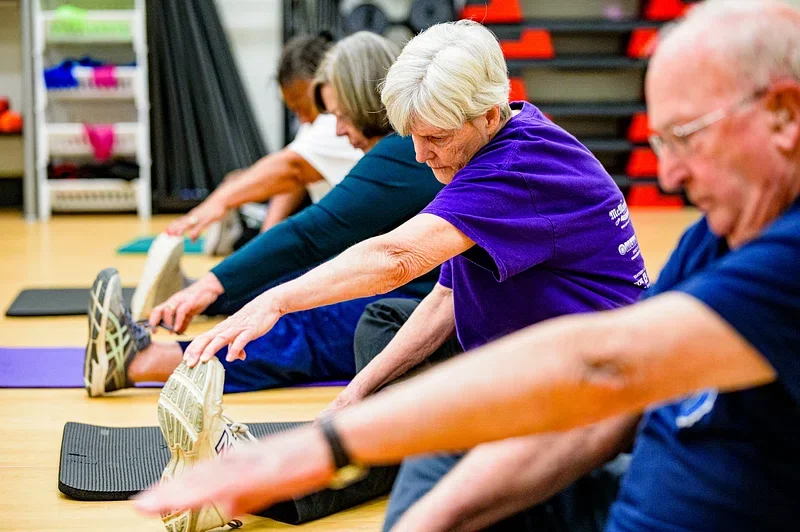
Osteoporosis is a condition where the bones reduce in mineral density over time. It is one of the most debilitating conditions experienced by our aging population and predisposes our elderly to having fractures, especially when combined with poor balance and an increased risk of falls. Here are 5 tips to prevent and delay the onset of osteoporosis:

- Strength training exercises. Strength training exercises can help to build bone mass and strength. These exercises should be done under the supervision of a physiotherapist or other healthcare professional. Some examples of strength training exercises include lifting weights, using resistance bands and doing bodyweight exercises such as push-ups and squats.
- Balance exercises. Balance exercises can help to improve coordination and reduce the risk of falls. These exercises should also be done under the supervision of a physiotherapist or other healthcare professional. Some examples of balance exercises include standing on one leg, walking heel-to-toe and doing tai chi.
- Stretching exercises. Stretching exercises can help to improve flexibility and range of motion. These exercises should be done gently and gradually. Some examples of stretching exercises for osteoporosis include reaching for your toes, bending forward at the waist and rolling your shoulders.
- Posture training. Good posture can help to reduce stress on bones and joints. A physiotherapist can help you to improve your posture by teaching you how to stand, sit and walk with better posture.
- Fall prevention strategies. There are a number of things you can do to reduce your risk of falls, such as making sure your home is well-lit, using grab rails in the bathroom and wearing shoes with good traction. A physiotherapist can also help you to develop a falls prevention plan.
In addition to these tips, there are a number of other things you can do to treat and manage osteoporosis, such as:

- Taking medication. There are a number of medications that can help to slow the progression of osteoporosis and reduce the risk of fractures.
- Eating a healthy diet. A healthy diet should include plenty of calcium and vitamin D, which are important for bone health.
- Getting regular exercise. Exercise can help to build bone mass and strength and it can also help to improve balance and coordination.
- Quitting smoking. Smoking can increase the risk of osteoporosis.
- Limiting alcohol intake. Excessive alcohol intake can also increase the risk of osteoporosis.
If you have osteoporosis, it is important to work with a healthcare team to develop a treatment plan that is right for you. This team may include a doctor, a physiotherapist, a registered dietitian and a pharmacist. By working together, you can help to slow the progression of osteoporosis and reduce your risk of fractures and falls.
